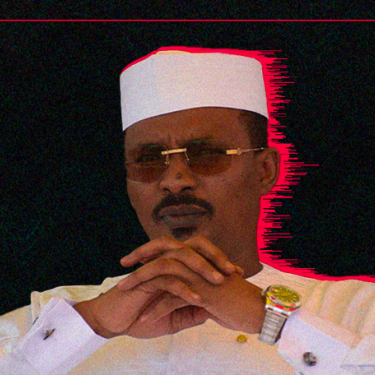Concern about newspaper’s suspension, other restrictions, two weeks before elections in Chad

Reporters Without Borders (RSF) is alarmed by the growing obstacles that Chad’s authorities are placing in the way of press freedom ahead of presidential elections on 6 May, including suspending a newspaper, preventing another from covering a political rally and banning interactive broadcasts.
For the media interview on 14 April to launch his campaign, Transitional President Mahamat Idriss Déby chose a journalist with a media outlet that did not officially exist – Manara Radio Télévision – along with representatives from the recognised news site Tchadinfos and Chad’s National Office for Broadcast Media, a governmental entity in charge of radio and TV.
Choosing Manara Radio Télévision was all the more surprising as this media outlet, which was not officially launched until the day after the interview was broadcast (April 14), is owned by Hassan Abdelkerim Bouyebri, who is none other than communications director-general at the president’s office.
This conflict of interest took place as election coverage by several privately owned and independent media was being obstructed. The security services prevented journalists with the Alwihda.info news site from covering President Déby’s first election campaign rally on 15 April in the capital N’Djamena. They seized the cameraman’s equipment and did not return it until the end of the event. The site responded by announcing that it would not cover Déby’s campaign.
Chad’s media regulator had meanwhile improperly suspended two active media outlets, Al-Idath and Le Libérateur, although the former was subsequently allowed to resume publishing.
As Chad advances towards a crucial presidential election, a succession of obstacles to press freedom are undermining the public’s right to news and information. We are concerned about this and call on the HAMA – the media regulator – to regulate properly and not restrict the Chadian media arena. We also urge candidates to respect and safeguard the work of journalists in a country that is currently ranked only 109th in the World Press Freedom Index.
Restrictive measures by regulator
A few days before the start of the election campaign, the High Authority for Media and Broadcasting (HAMA) banned all interactive broadcasts during the campaign.
“This is not the first time we have banned open-microphone broadcasts during a campaign,” HAMA president Abderamane Barka said. “The aim is to avoid excesses and maintain a news media balance during the elections.”
The ban, which has the effect of restricting the right of the public and civil society to express their views, was condemned by the Chadian Press Employers’ Association (PPT), Radio France Internationale reported.
Previously, on 19 March, the HAMA announced that it was suspending at least 19 radio stations, 24 print newspapers and seven online newspapers for “ceasing to publish and for non-compliance with the legal deposit requirement.”
However, according to the information obtained by RSF, two of the newspapers – Al-Idath and Le Libérateur – had not stopped publishing and had complied with all the legal requirements. One of them, Al-Idath, had its suspension rescinded a week after the announcement, but the other is still suspended.
When reached by RSF, Barka defended the HAMA’s decision. “Le Libérateur did not make a legal deposit on the last three publications, which led to its suspension,” he insisted. But the newspaper's publisher, Jules Daniel Yo-hounkilam, disputed this “The HAMA expressly refused to process the reinstatement request we submitted on 20 March,” he said. “The editor made the legal deposit on 12 February, the date our last issue was published.”
Threats to journalists’ safety
RSF points out that, during elections, the protection of journalists and respect for the right to information are crucial, especially in a country where the threats to journalists’ safety have continued to increase in recent months.
After Le Libérateur published an investigative report on the management of the National Office for the Promotion of Employment (ONAPE) in November 2023, its publisher was threatened by ONAPE’s former director and, following a kidnap attempt on 5 December, was forced to go into hiding until March.
Mongo community radio journalist Idriss Yaya was shot dead by an unidentified individual on 1 March in his home in Djondjol, a village in the centre of the country. And at least two Chadian journalists escaped kidnapping attempts in 2023.
